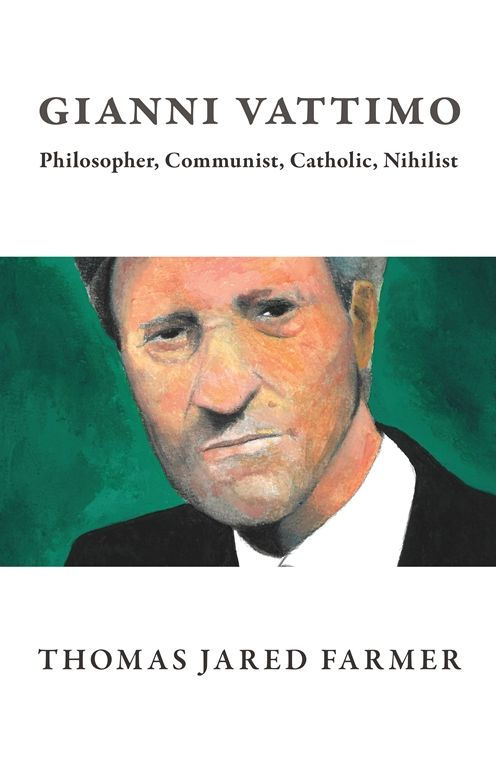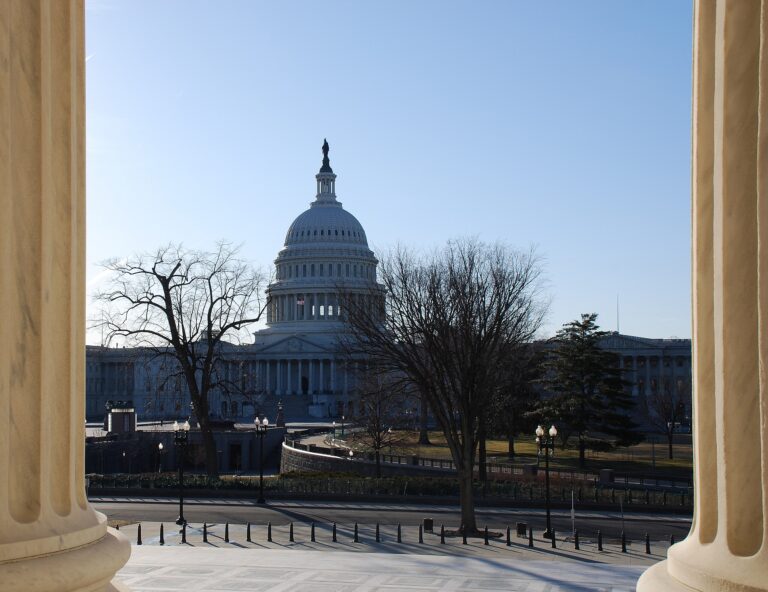
Weak Thought and the Law
Thomas Jared Farmer
The following is an excerpt from Thomas Jared Farmer’s upcoming book, Gianni Vattimo: Philosopher, Communist, Catholic, Nihilist. Farmer’s book is now available for pre-order. Excerpted with permission: Copyright (c) 2025 Columbia University Press. Used by arrangement with the Publisher. All rights reserved. Page numbers refer to publications linked in the text.
In the interest of brevity, we can think of traditional Western legal philosophy in broad terms as being roughly divisible between an older “natural-law theory” and the more dominant modernist theory of “legal positivism.” Natural-law theory contends that there exist in nature some set of principles that are timeless, universally valid, and knowable through reason. It is this set of principles, therefore, the theory maintains, that should form the normative standards for right (legal) behavior in any given society. Christian natural-law theory, furthermore, identifies this set of principles with the general revelation of God’s law available to all humans, which is separate from the “special revelation” of Christ necessary for salvation.

Natural-law theory itself can be traced to antiquity in the works of Aristotle, Cicero, Ulpian, and others. It received further development from the medieval period onward through the works of Thomas Aquinas , Francisco de Vitoria , Francisco Suárez , Hugo Grotius , and others. Its assumptions also undergirded the reasoning of much of the medieval canon law of the Roman Catholic Church. Conversely, the notion that there exists a natural order to the cosmos dictated by a coherent internal logic knowable through the human faculty of reason was also incidentally a foundational assumption of modernity in general and of the Enlightenment in particular. Thus, natural law played a guiding role in the thought of Renaissance humanists, Protestant reformers, as well as Enlightenment-era Lumières and revolutionaries. During the nineteenth century, however, for a whole host of reasons mostly having to do with the ambiguity of its application in specific legal cases, natural-law theory almost entirely fell out of favor in practical jurisprudence in favor of legal positivism.
Legal positivism argues instead that laws do not depend on ideals. The “fact” of a law depends rather on its enforceability, which in turn relies on the supervening realities of the state apparatus in question. Whether a law adheres to some set of foundational moral precepts or not is peripheral to the work of judges, lawyers, and officers of the law tasked with its actual day-to- day interpretation, implementation, and enforcement. A law is determined by what it says and how it can be reasonably interpreted. With the movement toward codification—that is, basing laws on written statutes and constitutions, which occurred after the enactment of the French Civil Code (or Code Napoléon) in 1804—this formal proceduralism acted to constrain the perceived ambiguities and arbitrariness of previous systems. Many felt that judges previously had too wide a latitude to base their findings on potentially idiosyncratic readings of local customs, ancient codes, or personal moral feelings colored by the guise of natural law. By contrast, legal positivism enjoyed a functional advantage because it more clearly limited the scope of the law to what is written on the page.
This approach can be traced to Thomas Hobbes , David Hume, Jeremy Bentham , and other like figures. Even so, the most important representatives of this school of thought are arguably John Austin , Oliver Wendell Holmes Jr. , Hans Kelsen , H. L. A. Hart , and Joseph Raz. Nevertheless, the atrocities of World War II, including the legal status of the Nazi regime’s antisemitic actions, drew into question the soundness of an approach to the law that had no basis in morality or social justice. As a result, Gustav Radbruch and others began to argue for a theory of human rights grounded in natural law as a failsafe against the possibility of legal despotism. Other contemporary advocates for a return to some form of natural-law theory include Germain Grisez, John Finnis, and Robert P. George.
In his book Nichilismo ed emancipazione: Etica, politica, diritto (Nihilism and Emancipation: Ethics, Politics, and Law, [Gianni] Vattimo argued that, as with other domains of knowledge, legal reasoning (even when exercised with methodological rigor) derives its justification ultimately from norms, rules, and decisions previously taken, not on pure facts alone. As Ana Messuti has noted, “There is a close connection between justice as administration and philosophy as hermeneutics, because both are lacking a metaphysical foundation. Just as democracy is no more than the application of a certain voting procedure, justice for Vattimo is the administration of, or the procedure for, the application of laws.” (112) Understanding the rational of some statute or precedent, therefore, requires a disassembly of that statue or precedent’s history and cultural context. “Law,” Vattimo contended, “does justice only by means of interpretive acts, the application of given laws by judges in dialogue with lawyers, public prosecutors, and various legal experts. The problematic of the relationship between justice and law goes back to the problematic of beginning, and interpretation operates on this problematic, either nakedly revealing its profound lack of foundation (which can in the last analysis provoke a shift to the place of mysticism) or filling the gap by rhetorical expedients, ad hoc adjustments, what [Pier Giuseppe] Monateri . . . calls fabulations.” (136)
As elsewhere, in Nihilism and Emancipation, Vattimo was skeptical of natural-law theory and contended that a focus on the historical basis of any interpretive act will disabuse one of any notion that decisions are made in an objective way that faithfully mirrors a real world external to our present contexts. He asks, therefore, “What becomes of our notions of justice and law when we take seriously the idea that metaphysics is without foundations?” Vattimo concludes that interpretation of the law that successfully produces consensus around specific applications is a model of good rhetorical discourse. The lack of ultimate foundations we find in a recognition of the nihilism of legal reasoning need not result in an abandonment of the process of building consensus, which forms a real basis for law as an acceptable standard for social behavior. He goes on to argue, however:
The increasing complexity of state forms has enormously accentuated the distance between the law and justice. Juridical formalism does not, in practice, really appear to be taking account of the “reality” of facts, the truth of the “rights” claimed by individuals and groups, of new rights, those, for example, demanded by the “new subjects” who are pressing for recognition in everyday life, and its procedural mechanisms for ensuring fairness seem to proceed so slowly that they provoke impatience in those who are thirsting for justice. Such impatience is another reason for interpretation to assume a more active role. In a democracy it must be seen for what it concretely is, no longer hiding behind the sacrality of the judge and his (in principle) unquestionable impartiality, and precisely because it is no longer clouded in a sacral aura, it is also called upon to heed the concrete demands, the voices that are rising from the world of new needs. (143)
Unlike other postmodern critical approaches to the law, which assume an outsider (etic) perspective on the legal system, Vattimo (as a legislator in the European Parliament) actually had an insider (emic) perspective on democratic proceduralism. This means that his approach arguably bears closest resemblance in both style and substance to the interpretivist legal hermeneutics of Emilio Betti, John Rawls, Ronald Dworkin, and other thinkers like them than it does to the more abstract considerations of the law given by Nietzsche, Foucault, Lyotard, Derrida, and Rorty—none of whom ever studied or practiced law. (143) Though Vattimo directed little of his academic work to the area of juridical philosophy, his position as a minister of the European Parliament makes Vattimo a unique representative within critical legal thought on the application of postmodern concepts to the law. This is a vantage point, therefore, well worth considering from both a legal and a philosophical perspective. ♦

Thomas Jared Farmer is currently an instructor in the Core Studies program at Oglethorpe University. He is also a fellow at the Center for the Study of Law and Religion at Emory University School of Law, where he recently served as the McDonald Scholar in Residence.
Recommended Citation
Farmer, Thomas Jared. “Weak Thought and the Law” Canopy Forum, October 22, 2025. https://canopyforum.org/2025/10/22/weak-thought-and-the-law/.
Recent Posts










